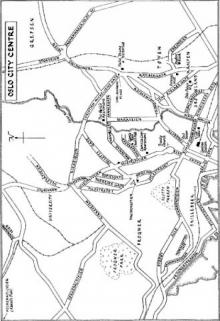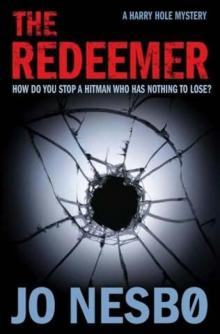Harry Hole Mysteries 3-Book Bundle Read online
Page 25
Erik Lossius owned and ran Rydd & Flytt, a removal company that had found a niche in an otherwise less than lucrative market by dint of standardised prices, aggressive marketing, cheap foreign labour and contracts that demanded cash payment as soon as the vehicles were loaded up but before they left for their destination. He had never lost any money on a customer, because among other things the small print stated that any complaints regarding damage or theft had to be made within two days, which in practice meant that 90 per cent of the fairly numerous complaints came too late and could therefore be dismissed. As far as the final 10 per cent was concerned, Erik Lossius had devised routines to make himself inaccessible or to slow the usual procedures, which became so draining that even those who had lost plasma TVs or had had pianos wrecked during the removal gave up in the end.
Erik Lossius had started in the industry at a young age with the former owner of Rydd & Flytt. The owner was a friend of Erik’s father, and his father had got him a job there.
‘The boy’s too restless to go to school and too smart to be a crook,’ the father had said. ‘Can you take him?’
As a salesman working on commission Erik soon distinguished himself with his charm, efficiency and brutality. He had inherited his mother’s brown eyes and his father’s thick curly hair and had an athletic build; women in particular decided not to collect quotes from other removal firms and signed on the spot. And he was intelligent and nifty with figures and ploys on the rare occasions the company was asked to bid for bigger jobs. The price was set low and the loss or damage excess set high. After five years the firm enjoyed a substantial profit and Erik had become the owner’s right hand in most areas of the business. However, during a relatively easy removal job just before Christmas – moving a table up to Erik’s new office next to the boss’s on the first floor – the owner had suffered a heart attack and dropped dead. In the days that followed Erik comforted the owner’s wife as well as he was able – and he was well able – and a week after the funeral they agreed on an almost symbolic transfer sum that reflected what Erik had emphasised was ‘a little business in a less than lucrative market with high risks and non-existent profit margins’. But, he asserted, the most important thing for him was that someone would carry on her husband’s life’s work. A tear glistened in his brown eyes as he said that, and she laid a trembling hand on his and said that he personally should visit her to keep her informed. With that Lossius became the owner of Rydd & Flytt and the first thing he did was to throw all the letters of complaint into the bin, rewrite the contracts, send circulars to all the households in Oslo’s wealthy West End where residents moved most frequently and were most price-sensitive.
By the time Erik Lossius was thirty, he had enough money to buy two BMWs, a summer residence to the north of Cannes and a five-hundred-square-metre detached house somewhere in Tveita where the high-rise flats he had grown up in didn’t block the sun. In short, he could afford Camilla Sandén.
Camilla came from bankrupt clothing nobility in the West End, from Blommenholm, an area which was as alien to the working man’s son as the French wine he now had stacked metre-high in his cellar in Tveita. But when he entered the great house and saw all the things that had to be moved, he discovered what he still didn’t have and therefore had to have: class, style, former splendour and a natural superiority that politeness and smiles only served to reinforce. And all this was personified in the daughter, Camilla, who sat on the balcony looking across Oslo fjord through a pair of large sunglasses which, for all Erik knew, could have been bought at the local petrol station, but which on her became Gucci, Dolce & Gabbana or whatever the other brands were called.
Now he knew what all the other brands were called.
He moved all their things, minus a couple of paintings that had to be sold, to a smaller house with a less fashionable address and never received a loss report on the one thing he had pinched off the load. Not even when Camilla Lossius was standing outside Tveita church as a bride, with the high-rises as silent witnesses, did her parents show with so much as a moue that they disapproved of their daughter’s choice. Perhaps because they saw that Erik and Camilla complemented each other in a way; he lacked refinement and she lacked money.
Erik treated Camilla as a princess, and she let him. He gave her what she wanted, left her in peace in the bedroom department whenever she wished and demanded no more than that she should pretty herself up when they went out or invited ‘couples they were friendly with’ – that is, friends from his childhood – to supper. She wondered from time to time whether he really loved her, and she slowly began to develop a deep affection for the ambitious, energetic Oslo East boy.
For his part, Erik was extremely happy. He had known from the start that Camilla was not the hot-blooded type; in fact, that was one of the things which, in his eyes, placed her in a higher sphere than the girls he was used to. He had his physical needs covered by close customer contact anyway. Erik had come to the conclusion that there had to be something in the nature of moving that made people sentimental, distressed and open to new experiences. At any rate, he porked single women, separated women, cohabiting and married women on dining tables, on staircase landings, on plastic-wrapped mattresses and freshly washed parquet floors amid taped-up cardboard boxes and echoing bare walls while wondering what he would buy Camilla next.
The genius of the arrangement was that naturally he would never see these women again. They would move out and disappear. And they did. Apart from one.
Birte Olsen was dark-haired, sweet and had a Penthouse body. She was younger than he was, and her high-pitched voice and the language it produced made her seem even younger. She was two months into a pregnancy, moving into town from his part of Tveita to Hoffsveien with the child’s father-to-be, a West End man she was going to marry. This was a move Erik Lossius could identify with. And – he realised after taking her on a plain spindle-back chair in the middle of the stripped room – sex he could not do without.
In a nutshell, Erik Lossius had met his match.
Yes, indeed, because he thought of her as a man, one that did not pretend she wanted anything different from him: to fuck the other person’s brains out. And in a way they did just that. At any rate they began to meet in bare apartments, being moved out of or into, at least once a month and always there was a distinct risk of being found out. They were quick, efficient and their rituals were fixed and without variation. Nevertheless, Erik Lossius looked forward to these assignations like a child to Christmas – that is, with unfeigned, uncomplicated joy which was only increased by the certainty that everything would be the same, that their expectations would be fulfilled. They lived parallel lives, had parallel realities and that seemed to suit him as much as it suited her. And so they continued to meet, interrupted only by the birth – which fortunately was accomplished with a Caesarean section – some fairly long holidays and an innocent STD whose source he was neither able to nor attempted to trace. And now ten years had passed, and in front of Erik Lossius, sitting on a cardboard box in a half-emptied flat in Torshov, a tall, shaven-headed man with a lawnmower voice was asking if he had known Birte Becker.
Erik Lossius gulped.
The man had introduced himself as Harry Hole, an inspector in Crime Squad, but looked more like one of his removal men than an inspector of anything. The police officers Erik had spoken to after he had reported Camilla’s disappearance were from the Missing Persons Unit. However, when this one had shown his ID, Erik’s first thought had been that he had news of Camilla. And – since the officer in front of him hadn’t rung but tracked him down to here – he feared it was bad news. Accordingly, he had sent his removal crew out and asked the inspector to take a seat while he found a cigarette and tried to prepare himself for what was to come.
‘Well?’ said the inspector.
‘Birte Becker?’ Erik Lossius repeated, trying to light his cigarette and think fast. He didn’t manage either. Christ, he couldn’t even think slowly.
&nb
sp; ‘I appreciate that you have to compose yourself,’ the inspector said, taking out his own packet of cigarettes. ‘Take your time.’
Erik watched the inspector light up a Camel and leaned over when he held the lighter out to Erik.
‘Thanks,’ Erik mumbled, sucking so hard that the tobacco crackled. The smoke filled his lungs, and it was as if the nicotine were being injected into his bloodstream, clearing all the obstructions. He had always thought this would happen sooner or later; that the police would somehow discover a link between him and Birte and come asking questions. But at that time he had only worried about how he would keep it hidden from Camilla. Now everything was different. From right now, in fact. Because up until this moment he hadn’t realised that the police might think there was a connection between the two disappearances.
‘Birte’s husband, Filip Becker, found a notebook in which Birte had entered a kind of easy decipherable code,’ the policeman said. ‘There were telephone numbers, dates and tiny messages. Leaving little doubt that Birte had regular contact with other men.’
‘Men?’ Erik let slip.
‘If it’s any consolation, Becker thought you were the one she met most often. At a huge variety of addresses, I’m led to believe,’ Harry added.
Erik, adrift in a boat watching a tidal wave growing on the horizon, didn’t answer.
‘So Becker found your address, took his son’s toy gun along with him – a very authentic-looking imitation of a Glock 21 – and went to Tveita to wait for you to come home. He wanted to see the fear in your eyes, he said. Threaten you to make you tell whatever you knew so that he could pass your name on to us. He followed the car into the garage, but it turned out your wife was driving.’
‘And he … he …’
‘Told her everything, yes.’
Erik rose from the cardboard box and walked over to the window. The flat had a view of Torshov Park and an Oslo bathed in wan morning sun. He didn’t like the old apartment blocks with views. They meant stairs. The better the view, the more stairs there were and the more exclusive the apartments, which meant heavier, more expensive goods, higher payouts for damage and more days with his men off sick. But that was the way it was when you exposed yourself to the risks of maintaining fixed low rates; you always won the competition for the worst jobs. Over time there is a price to pay with all risks. Erik took a deep breath and heard the policeman scuffing his feet on the wood floor. And he knew. This detective would not be worn down by any delaying tactics. This was one damage report he would not be throwing in the bin. Birte Olsen, now Becker, was going to be the first customer he would suffer a loss on.
‘Then he told me he’d been having an affair with Birte Becker for ten years,’ Harry said. ‘And that when they met and had sex for the first time she’d been pregnant with her husband.’
‘You’re pregnant with a girl or a boy,’ Rakel corrected, patting down the pillow so that she could see him better. ‘Or by her husband.’
‘Mm,’ Harry said, levering himself up on his arm, stretching across her and grabbing the cigarette packet on the bedside table. ‘Not more than eighty percent of the time.’
‘What?’
‘They said on the radio that somewhere between fifteen and twenty per cent of all children in Scandinavia have a different father from the one they think.’ He shook a cigarette out of the packet and held it up against the afternoon light seeping in under the blind. ‘Share one?’
Rakel nodded without speaking. She didn’t smoke, but this was something they had always done after making love: shared this one cigarette. The first time Rakel had asked to taste his cigarette, she had said it was because she wanted to feel the same as he did, to be as poisoned and stimulated as he was, to get as close to him as she could. And he had thought of all the girl junkies he had met who had had their first fix for the same idiotic reason, and refused. But she had persuaded him and eventually it had become a ritual. After they had made love slowly, lingering over it, the cigarette was like an extension of their lovemaking. At other times it was like smoking a peace pipe after a fight.
‘But he had an alibi for the whole of the evening Birte went missing,’ Harry said. ‘A boys’ night in Tveita that started at six and lasted all night. At least ten witnesses, admittedly wasted for the most part, but no one had been allowed to go home before six in the morning.’
‘Why keep it a secret that Vetlesen wasn’t the Snowman?’
‘As long as the real Snowman thinks we think we’ve got the killer he’ll lie low, hopefully, and won’t commit any more murders. And he won’t be so wary if he thinks the hunt has been called off. In the meantime we can quietly work our way closer at our leisure …’
‘Do I hear irony there?’
‘Maybe,’ Harry said, passing her the cigarette.
‘You don’t quite believe that then?’
‘I think our superiors have many reasons for concealing the fact that Vetlesen wasn’t our man. The Chief Superintendent and Hagen held the press conference at the time when they were congratulating themselves on solving the case …’
Rakel sighed. ‘And yet still I do occasionally miss Police HQ.’
‘Mm.’
Rakel studied the cigarette. ‘Have you ever been unfaithful, Harry?’
‘Define unfaithful.’
‘Having sex with someone other than your partner.’
‘Yes.’
‘While you were with me, I mean.’
‘You know I can’t be absolutely certain.’
‘OK, sober then.’
‘No, never.’
‘So what does that make you think of me? Being here now?’
‘Is this a trick question?’
‘I mean it seriously, Harry.’
‘I know. I just don’t know if I feel like answering it.’
‘Then you can’t have any more of the cigarette.’
‘Mm. Alright. I think you believe you want me, but you wish you wanted him.’
The words hung over them as if imprinted in the darkness.
‘You’re so bloody … detached,’ Rakel erupted, handing Harry the cigarette and crossing her arms.
‘Perhaps we shouldn’t talk about it?’ Harry suggested.
‘But I have to talk about it! Don’t you see? Otherwise I’ll go out of my mind. My God, I’m already out of my mind, being here, now …’ She pulled the duvet up to her chin.
Harry turned and slid over to her. Already before he had touched her she had closed her eyes, tipped back her head and from between her parted lips he could hear her breathing accelerate. And he thought: how does she do it? From shame to sexual abandon in a flash? How can she be so … detached?
‘Do you think …’ he said, seeing her open her eyes and stare at the ceiling in surprise and frustration at the caresses that hadn’t materialised, ‘a bad conscience makes us wanton? That we’re unfaithful not in spite of the shame but because of it?’
She blinked a couple of times.
‘There’s something in that,’ she said at length. ‘But it’s not everything. Not this time.’
‘This time?’
‘Yes.’
‘I asked you once and at that time you said –’
‘I was lying,’ she said. ‘I’ve been unfaithful before.’
‘Mm.’
They lay in silence listening to the distant drone of the afternoon rush hour in Pilestredet. She had come to him straight from work; he knew Rakel and Oleg’s routines, and knew she would have to go soon.
‘Do you know what I hate about you?’ she said finally, giving his ear a tweak. ‘You’re so bloody proud and stubborn you can’t even ask if it was to you.’
‘Well,’ Harry said, taking the half-smoked cigarette and admiring her naked body as she jumped out of bed, ‘why would I want to know?’
‘For the same reason Birte’s husband did. To reveal the lie. To have the truth out in the open.’
‘Do you think the truth will make Filip Becker any less un
happy?’
She pulled the sweater over her head, a tight-fitting black one in coarse wool that lay straight over her soft skin. It occurred to Harry that if he was jealous of anything, it was the sweater.
‘Do you know what, herr Hole? For someone whose job it is to uncover unpleasant truths you certainly enjoy living a lie.’
‘OK,’ Harry said, stubbing the cigarette in the ashtray. ‘Out with it then.’
‘It was in Moscow while I was with Fjodor. There was a Norwegian attaché at the embassy I had trained with. We fell head over heels in love.’
‘And?’
‘He was also in a relationship. As we were about to finish with our respective partners she got in first and told him she was pregnant. And since by and large I have good taste as far as men go …’ Pulling on her boots, she screwed up her top lip. ‘I had of course chosen someone who would not desert his responsibilities. He applied for a transfer back to Oslo, and we never saw each other again. And Fjodor and I got married.’
‘And straight afterwards you became pregnant?’
‘Yes.’ She buttoned up her coat and looked down at him. ‘Now and then I’ve wondered whether it was to get over him. And whether Oleg was a product not of love but of love-sickness. Do you think he was?’
‘I’ve no idea,’ Harry said. ‘I just know he’s one great product.’
She smiled down at him in gratitude and stooped to give him a kiss on the forehead. ‘We’ll never see each again, Hole.’
‘Of course not,’ he said, sitting up in bed and staring at the bare wall until he heard the heavy door on to the street close behind her with a dull thud. Then he walked into the kitchen, turned on the tap and took down a glass from the top cupboard. While waiting for the water to run cold his gaze fell on the calendar with the picture of Oleg and Rakel in the sky-blue dress and then onto the floor. There were two wet boot prints on the lino. They must have been Rakel’s.

 Blood on Snow: A novel
Blood on Snow: A novel Police: A Harry Hole thriller (Oslo Sequence 8)
Police: A Harry Hole thriller (Oslo Sequence 8) Doctor Proctor's Fart Powder: The Great Gold Robbery
Doctor Proctor's Fart Powder: The Great Gold Robbery Bubble in the Bathtub
Bubble in the Bathtub Doctor Proctor's Fart Powder: Time-Travel Bath Bomb
Doctor Proctor's Fart Powder: Time-Travel Bath Bomb The Bat
The Bat Doctor Proctor's Fart Powder: The End of the World. Maybe.
Doctor Proctor's Fart Powder: The End of the World. Maybe. Silent (but Deadly) Night
Silent (but Deadly) Night Who Cut the Cheese?
Who Cut the Cheese? Headhunters
Headhunters The Jealousy Man and Other Stories
The Jealousy Man and Other Stories Harry Hole Mysteries 3-Book Bundle
Harry Hole Mysteries 3-Book Bundle The Thirst
The Thirst The Son
The Son The Redeemer
The Redeemer The Kingdom
The Kingdom The Snowman
The Snowman The Redbreast
The Redbreast Phantom
Phantom Macbeth
Macbeth The Leopard
The Leopard Blood on Snow
Blood on Snow Midnight Sun
Midnight Sun The Redbreast (Harry Hole)
The Redbreast (Harry Hole) The Devil's Star
The Devil's Star Cockroaches
Cockroaches The Magical Fruit
The Magical Fruit The Snowman: A Harry Hole Novel
The Snowman: A Harry Hole Novel Doctor Proctor's Fart Powder
Doctor Proctor's Fart Powder The Cockroaches
The Cockroaches Knife
Knife Phantom hh-9
Phantom hh-9 The Redbreast hh-3
The Redbreast hh-3 The Redeemer hh-6
The Redeemer hh-6 The Leopard hh-8
The Leopard hh-8 The Leopard: An Inspector Harry Hole Novel
The Leopard: An Inspector Harry Hole Novel The Great Gold Robbery
The Great Gold Robbery Police hh-10
Police hh-10 The End of the World. Maybe
The End of the World. Maybe The Thirst: Harry Hole 11
The Thirst: Harry Hole 11 Nemesis - Harry Hole 02
Nemesis - Harry Hole 02 The Devil's star hh-5
The Devil's star hh-5 Time-Travel Bath Bomb
Time-Travel Bath Bomb